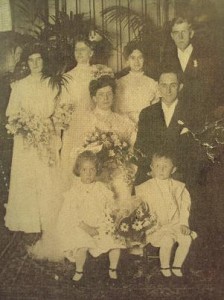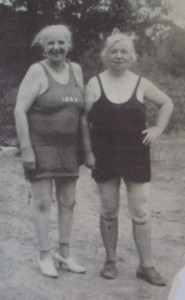Half way through last Sunday’s sermon, a skirmish in one of the pews got everyone’s attention and stopped the pastor’s preaching.
“Someone call 911!” a man said, as he bent over the person having trouble. Several from the congregation jumped to help, and a uniformed security man entered the sanctuary speaking into his shoulder radio, “Yes, the Free Church on Douglas.”
I was sitting with my former next-door-neighbor, who’d had personal experience with 911 and had lost her husband to quick cancer shortly after we lost Nate. We both clutched.
The elderly gentleman struggling during the service was given a wheelchair ride to the parking lot where an emergency vehicle awaited, its flashing lights pushing their way through our stained glass windows. The service resumed, but Becky and I were lost in thought.
How quickly our minds race back to trauma. A soldier, newly home from a war, flinches when he hears what sounds like gunfire. An earthquake victim feels like running when a truck passes and the ground vibrates.
Trauma imprints our brains with extra oomph when it’s been life-threatening. A 911 call, death, gunfire, an earthquake – each stimulates us to act on fearful impulse. Later, when similar circumstances pop up, we react the same.
Some people organize their entire lives around an upsetting event, either by reliving it over and over or by making sure it doesn’t ever happen again. In both cases the incident dominates thought life and keeps someone stuck. Opportunities are lost, and a sad spirit dominates every day.
Is there a way to distance ourselves from past trauma when something like a 911 call yanks us back?
Yes, and God gives us the key: to set our minds on him.
If we fill our heads with his supremacy and sufficiency, other thoughts must leave. It’s easy to get mentally lost in our troubles, and immediately after Nate died, I felt that way, continually reliving his rapid decline and death, camping there for months. But calling out to God for comfort and peace slowly filled my mind with something other than Nate, and it was the Lord.
If today I was asked to hold someone’s hand as they died, even a stranger, deep sadness would cover me like a heavy blanket. But I wouldn’t stay under it for long, because I’ve become acquainted with a new mindset God has put in my head, thoughts dotted with hope and future plans because he is in them. Although I’ll never forget the details of our family trauma, I don’t live inside of it anymore.
God is our Creator, and he’s continually making all things new. When we believe that and watch for how he’s doing it in us, we won’t have to fear being pulled backwards by a 911 call but can quickly move forward into the fresh optimism he’s created.
“The former things will not be remembered, nor will they come to mind. But be glad and rejoice forever in what I will create.” (Isaiah 65:17,18)




